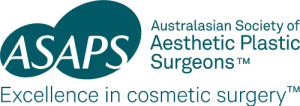Australasian Society of Aesthetic Plastic Surgeons National PR and Marketing Manager, Julia Power writes, the rise of the social media has changed forever how brands, organisations and in particular small to medium sized businesses connect with consumers. As with other industries, medical practices and in particular plastic surgery practices are now able to reach potential patients more directly, more organically, and at scale via their social media channels.
The shift to social media means consumers now look at each other and their favourite personalities, who are accumulating massive followings on Facebook, YouTube, Instagram, Twitter, and the like to inform their purchasing decisions. This has led to the commodification of many cosmetic procedures and treatments.
- Almost 7 in 10 Australians have a Facebook account (16 million users).
- 1 in 2 Australians use YouTube.
- 1 in 5 Australians use Instagram.
- 1 in 6 Australians use Snapchat (4 million daily active users).
- 6 million Australians have LinkedIn accounts.
- Both Instagram and Snapchat have grown their Australian user base considerably in the last 12 months.
- Twitter has 2.8 million monthly active users.
With these staggering numbers it’s no wonder that social platforms such as Facebook and Instagram are now a source of information and content sharing for consumers.
Social media has a massive impact on people’s lives and their decision making processes. Patients now do the majority of their research on social media platforms – from what procedure to have done and which surgeon to choose. Gone are the days where patients will make an appointment with their GP for advice on who they will see for a breast augmentation. Potential patients look to Instagram, Google, Facebook and gauge fellow patient’s stories for a better understanding of who they want to see for their surgery or treatment. And why wouldn’t they? Who better to give an accurate account about a procedure than someone who has been through the exact same experience?
Despite all of this sharing going on, regulators have been slow to respond. The Australian Health Practitioner Regulation Agency (AHPRA), who sets the advertising guidelines for medical practitioners in Australia, still insist that patients are prohibited from sharing a positive or negative experience they’ve had with a plastic surgeon on social media. Sadly, the group that is most disadvantaged by this position are the legitimate practitioners who are trying to abide by the Guidelines. That is the fully trained and qualified Specialist Plastic Surgeons. Put simply, if you are willing to advertise yourself a Cosmetic Surgeon, despite not having any formal surgical training, therefore breaching the AHPRA Guidelines, the ramifications and consequences are an insignificant hurdle.
AHPRA offers these principles for medical practitioners to follow:
- Advertising can be a useful way to communicate the services health practitioners offer to the public so that consumers can make informed choices.
- Advertising that contains false and misleading information may compromise health care choices and is not in the public interest.
- The unnecessary and indiscriminate use of regulated health services is not in the public interest and may lead to the public purchasing or undergoing a regulated health service that they do not need or require.
Surely, so long as medical practitioners are advertising with integrity and people aren’t being paid or solicited for comments that are unfounded or unrealistic, then patients and practices should be unrestricted in their right to share those experiences?
It seems time for the regulators to address this issue by reflecting in the Guidelines that social media platforms are the word of mouth equivalent in today’s digitally dominated world.

